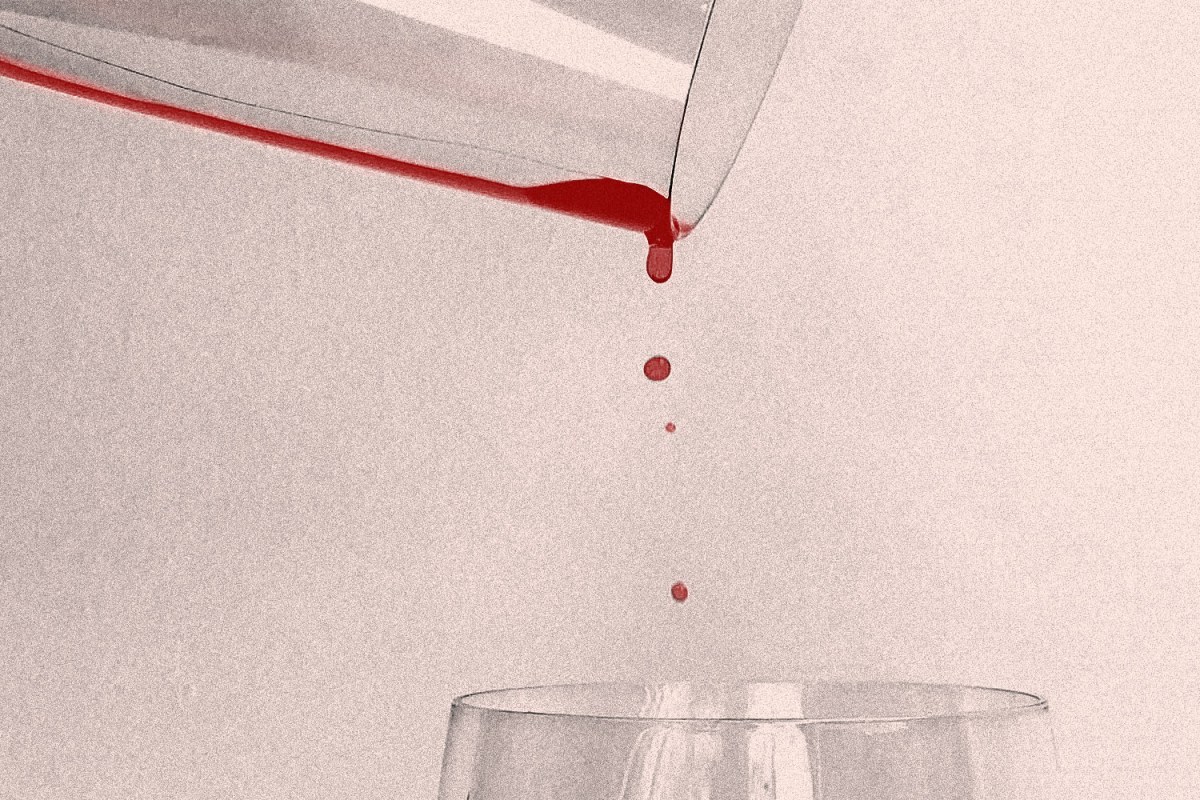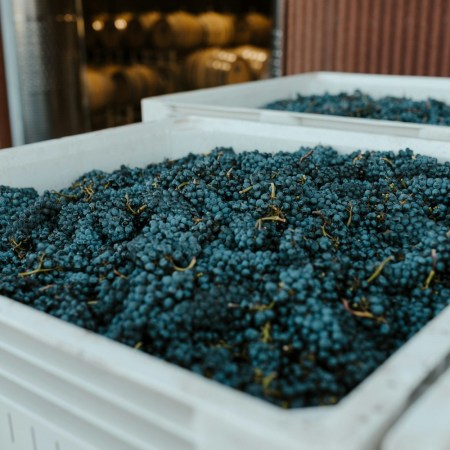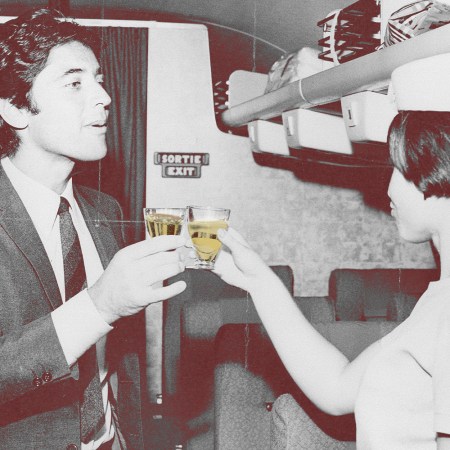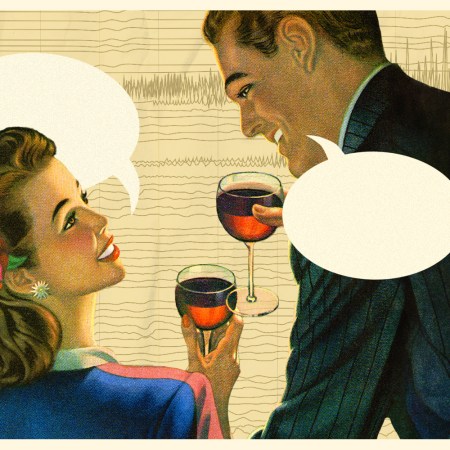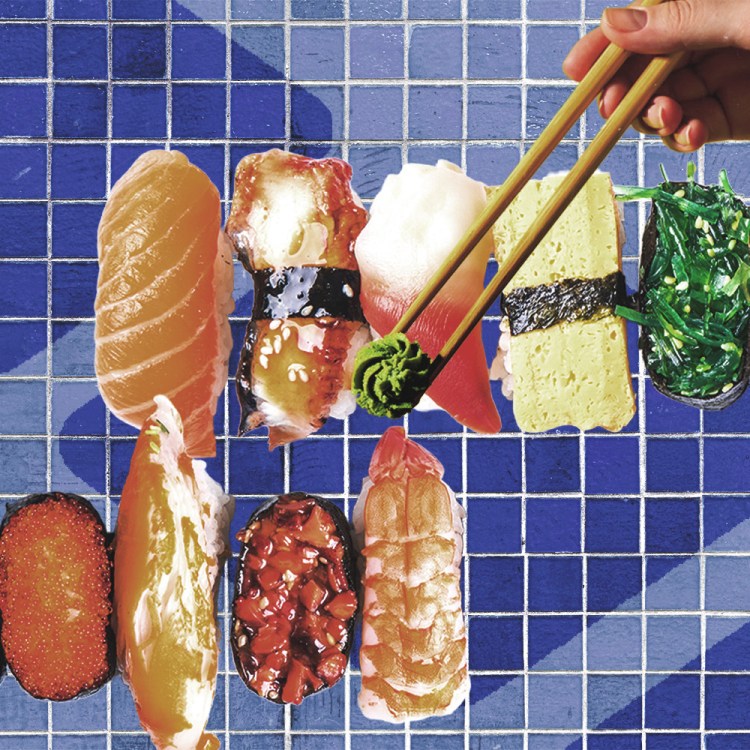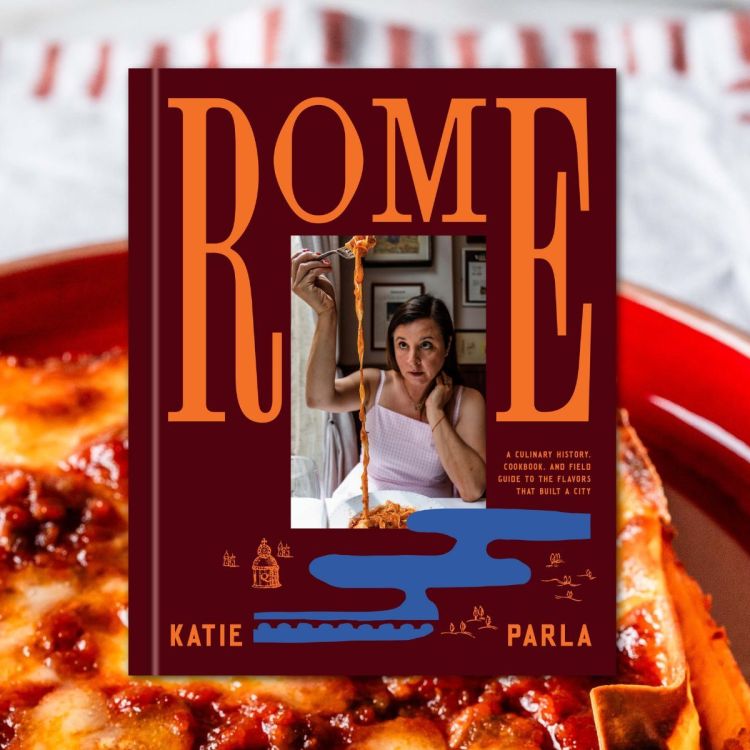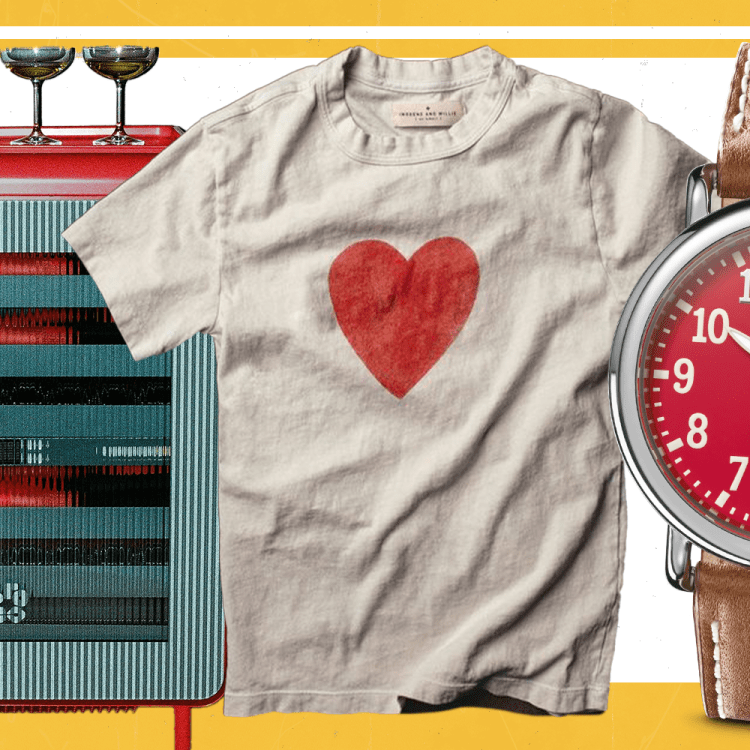Last summer, a new wine bar opened In Brooklyn’s Bedford-Stuyvesant neighborhood. Named Kiki et Romeo, it specializes in natural wine — wines, generally speaking, made with the minimal amount of added chemicals both in the vineyard and the cellar — and is named for the two draft horses that help plow the Loire vines farmed by winemaker Olivier Cousins. It’s the kind of place where you can drink old-school French Chardonnay that tastes like stones rather than California butter, or a floral red wine made high on a volcano in Sicily by a Belgian winemaker that tastes practically alive.
Over the past decade, the sometimes funky, sometimes spritzy tastes of natural wine have become central to American food culture, and bars like Kiki et Romeo have become a staple of gentrification. In a New Yorker story on natural wine published last year, Baltimore wine buyer Kasimir Bujak said, “It’s a trickle-down effect from Brooklyn — and that means people in Columbus are going to be drinking it next.” Indeed, what was once a niche trend is snowballing: in addition to natural wine bars there are also pie shops that serve natural wine, coffee shops that serve natural wine, Thai spots that serve natural wine and seemingly a million vegetable-centric small-plates restaurants that serve natural wine. And all of it is now at risk of disappearing thanks to the latest escalation by the Trump administration in an ongoing trade dispute over … airplanes.
The U.S. has long argued that the European jet manufacturer Airbus has an unfair advantage over its U.S.-based competitor Boeing because it receives government subsidies; in retaliation, the U.S. is as of yesterday charging a 100-percent tariff on a number of so-called luxury goods imported from the E.U., including wine, cheeses, olive oil, Scotch, Irish whiskey and more. The tariffs follow a more limited 25-percent tariff that was put on certain wines last fall.
In this new trade climate, prices of European wines in the U.S. are set to double, and a bottle of Cabernet Franc made with the help of Kiki et Romeo could jump from around $30 retail to $60 a glass. That is, if it’s available at all. Wines made by small natural-wine producers likely won’t increase in price, according to Cory Cartwright, co-founding partner at Selection Massale, one of the importers that helped popularize such wines in the States. Rather, “they will cease to exist in the American market while the tariffs are active,” he says. For retailers devoted to natural wine, as much as 90 percent of stock could disappear.
“Our little corner is completely served by small importers and distributors. Most importers are devoted to one continent, Europe, and don’t have a global portfolio that would insulate them from this,” he says (Cartwright recently sold his interest in Selection Massale, but remains active in the effort to organize against the tariffs). “All these people are going to hurt because of the careful way they do business and select wines.” And while there are American natural wines being made in Maine and California and many places in between, those domestic producers are often in the same portfolios as their E.U. counterparts, and wines both foreign and domestic rely on the same distribution and fulfillment infrastructure, which is expected to take a hit as a result of the tariffs. In terms of sheer volume, U.S. winemakers of all stripes simply cannot match the output of wine-producing countries in the E.U.
“For many of our wines there is no replacement,” says Lou Amdur of Lou Wine Shop in Los Angeles. It’s a fact that presents a grim future for those who make a living off of natural wine. “For us, very plainly, if the tariffs are enacted to their fullest extent, [we] would close after we run out of wine,” says Peter Hale, who co-owns Maine and Loire and Drifters Wife, a wine store and restaurant in Portland, Maine, with his wife, Orenda.
For decades, the big, heavy palate popularized by critics like Robert Parker dominated American wine. The subsequent embrace of natural wine has represented a notable shift away from that style, drawing such superlatives as a “symbol of virtuous consumption” and “an irresistible assault on pleasure.” These wines are animating the cooking at restaurants like New York’s Wild Air and Frenchette and LA’s Botanica and Night + Market; it is arguably the beverage that is most vital to the American food scene in 2020. But despite its popularity, natural wine is still too small to register in any kind of analysis of the $70 billion wine market.
With producers’ emphasis on transparency and sustainability, the growing interest in natural wine mirrors the ways in which diners are increasingly thinking about everything else that goes into a meal. If you’re eating local, organic vegetables, pasture-raised meats and drinking single-origin coffee and craft beers, it follows that picking a bottle of wine should follow a similar narrative. The story of a salty vigneron like Cousins plowing his fields planted with gnarled old vines of obscure grape varietals matches up with that of the iconoclastic farmer growing heirloom vegetables. But the relationship between food and wine runs deeper, too. In many ways, the things we eat now — all of the salad-y, vegetable-starring dishes that are light on meat and long on lemons, herbs and spices — are ideally matched to the natural-wine palate. To say what came first presents a bit of a chicken-and-egg conundrum, but the fact of the matter is that the two are intertwined, and losing the wine piece of the equation will deeply affect American food culture.
Without natural wine, “[our] restaurant will have its heart ripped out of it,” says Orenda Hale. “It won’t be Drifters Wife.”
Orenda and Peter met while working at restaurants in New York City, including Diner. They moved to Maine over five years ago, and brought the natural wines they love along with them. In 2018, Bon Appétit included Drifters Wife on its Best New Restaurants list. But without their natural wines, something essential will be lost. “Even if we’re able to stay open because we’re able to source all of our food from local farmers, and we’ll still have all of our amazing wild-caught fish, it won’t be Drifters Wife any longer.”
If the tariffs decimate wine imports, as many in the industry expect, “It would be a matter of survival if we stay open,” says Peter. “We’d keep it together to keep it open so that our staff could have a livelihood.” But they’d be trying to figure out a change in their careers, too.
Wines that were subject to the 25-percent tariff are just now hitting shelves. But that uptick in cost was small enough that it could be spread out across the supply chain, with only minor increases on retail prices. The same will not be true the second time around, so the fairly tight-knit wine community is organizing to try and stop the tariffs. While the public comment period is now closed, the Hales and others are aiming to get Massachusetts Rep. Richard Neal, the Chair of the Ways and Means committee, to call a hearing on the tariffs on the House floor, and are encouraging supporters to call their reps about the issue.
Being collateral damage in a dispute between corporations worth billions of dollars makes the Hales angry, but that’s not the extent of it: “The losing the wine makes us sad,” Peter says. “That’s an existential problem.”
“It’s our whole life for 20 years,” he continues. “It brought us together as a couple, it gave us the power to believe that we could open a business in a faraway place where the wines didn’t exist yet. It’s our life.”
1/21/20 update: On Monday, President Trump and French President Emmanuel Macron agreed to hold off on any tariff increases for the time being. The 25 percent tariff on certain EU wines, which was put into place at the end of last year remains in effect.
Every Thursday, our resident experts see to it that you’re up to date on the latest from the world of drinks. Trend reports, bottle reviews, cocktail recipes and more. Sign up for THE SPILL now.
